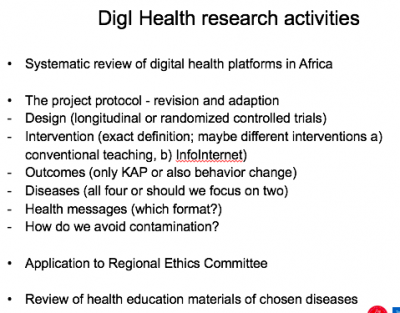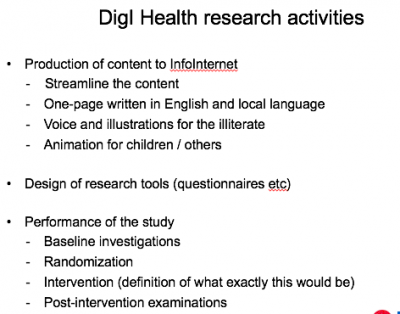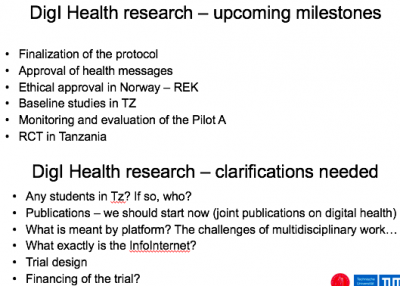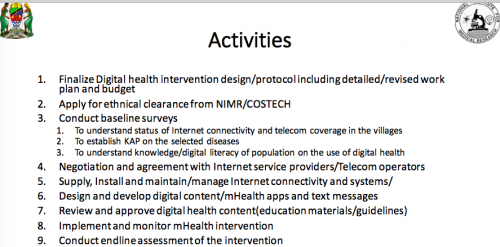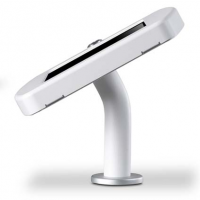DigI:DigI Inception Meeting Sep2017
From its-wiki.no
| Digital Inclusion (DigI) | |||||||
|---|---|---|---|---|---|---|---|
|
DigI:DigI Inception Meeting Sep2017
| Title | DigI_Inception_Meeting_Sep2017 |
|---|---|
| Place | ITS |
| Date, Time | 2017/09/14, 10:00h - 15Sep2017 15:00h |
| Contact Person | Christine Holst |
| Participants | Andrea Winkler, Bernard Ngowi, Bjarne Tarjei Haugen, Christine Holst, Danica Radovanovic, Elibariki Mwakapeje, Erwan Le Quentrec, Felix Sukums, Finn Helge Tolpinrud, Helena Ngowi, Ingeborg K. Haavardsson, Iñaki Garitano, Josef Noll, Maurice Isabwe, Peter Cardellichio, Clemence Ineza, Vidar Sannerhaugen |
| related to Project | DigI |
| Keywords |
| this page was created by Special:FormEdit/Meeting, and can be edited by Special:FormEdit/Meeting/DigI:DigI Inception Meeting Sep2017 |
| Category:Meeting |
Venue
The kick-off will take place at the Basic Internet Foundation, Gunnar Randers vei 19, 2007 Kjeller, co-located with the Department of Technology Systems (ITS) at the University of Oslo. See:
- How to travel to Kjeller, Google Maps
- Hotel recommendations: we don't have specific recommendations, choose what you like. It is 10 min by train from Oslo Central Station to Lillestrøm, and from there bus service to Kjeller. Thus, no real difference in choosing a hotel in Kjeller, Lillestrøm or Oslo
Reimbursement
Every partner is responsible for booking of the trip & hotel. If you need help, ask Christine or Josef for help. Regarding reimbursement, please have in mind the Governmental_Rules_2017_Travel which the Research Council of Norway applies for reimbursement.
Agenda
The meeting will be from 14Sep2017 09:00h until 15Sep2017 14:00h at the Basic Internet Foundation (UiO building), Gunnar Randers vei 19, 2007 Kjeller.
| Presenter | Presentation File | |
|---|---|---|
| Digital Health Intervention in TZ - Plans and Time Schedule | Felix Sukums | Click to Open |
Thursday, 14Sep2017
- 10:00 Welcome
- 10:10 Table round
- 10:30 Why: "Non-discrimating Access for Digital Inclusion" (Josef Noll, Basic Internet Foundation, NO)
- 10:45 Status quo and discussion
- 11:15 "Digital Health for Africa, experiences from Tanzania" (Bernard Ngowi, National Centre for Medical Research, TZ)
- 11:30 Q&A - Tanzania (NMRI // SUA)
- 12:00 lunch outside at the Health Spot
- Peter (Global Health Media) joined on Skype
- 13:00 "Germany-Norway collaboration: Centre for Global Health" (Andrea Winkler, University i Oslo, NO)
- 13:15 Q&A - health
- 13:45 "Digital Economies starting from the Mobile Phone" (Erwan Le Quentrec, Orange, FR)
- 14:00 Q&A - Mobile and development
- 14:30 Coffeebreak
- 14:45 "The Off-Grid Challenge: Examples from Congo and Gabon" (Finn Helge Tolpinrud, IPXextenso, NO)
- 15:00 Q&A - digital economies
- 15:30 end of meeting, travel to Oslo
- ---
- 16:30 Becoming Nordic Social Event (take warm cloths and a big towel with you)
Friday, 15Sep2017
- 09:00 Summary of day 1, identification of topics:
- go through workplan to get a common understanding,
- focus on health inception,
- digital literacy
- content creation and
- management
- 09:30 Plans and Time Schedule TZ (Felix...)
- 10:30 Plans and Schedule DRC (Finn Helge)
- 11:00 Interactivity, Health Platform and Village platform
- Incentives for People
- 12:00 lunsj
- 13:00 AOB
- Next meetings
- Next steps: presented by Felix; Negotiations with Telecom Operators; UCSAF pilot: In-kind
- Action Items
- Scientific papers (suggestions)
- 13:40 AOB
- 14:00 End of meeting
Minutes
These minutes are based on the notes of the project participants. Guidance for future work is defined through the Action Items
About the Project
The project vision on free access to information for everyone' is realised in Tanzania through the intervention free access to digital health information and in DRC through free access to information as basis for digital economy.
The assumption of the project is that information uptake will
- lead to knowledge update, both for health education and for school education;
- prepare the ground for digital literacy;
- contribute to better health for humans and animals; and will
- foster societal growth both in terms of digital entrepreneurship and the overall economy.
We approach the vision of the design of new technology, the InfoInternet, providing hot-spots with free access to information both on user devices (BYOD) and on tablets. Through the hot-spots, we address availability and affordability. The hot-spots themselves will create jobs related to the digital economy (e.g. voucher sales), and are the entry points for other actors supporting information access, e.g. sponsoring Internet Access through advertisements.
Economic drivers for Internet (from mobile networks) are based on payed services, though some operators offer some services for free, e.g. Whatsapp and Facebook. Free access to health information or education is not covered by the current economic model.
In Tanzania, we target the community through preparing a the grounds of a public-private partnership (PPP), with free information access and paid access to bandwidth-demanding applications. We are seeking interactivity with the community, both through monitoring the usage of resources, through active actions from the user (e.g. like), and through specific feedback. For clarification, Cystinet-Africa focusses mainly on health care providers, as well as students and teachers.
Current health information is provided through SMS and voice, given the low number of Smartphones. The suggested InfoInternet access will allow free access to information for text and pictures, as well as local video streaming. The project plan is to
- provide the free access to information,
- have technical people providing the intervention, that means the InfoInternet, and
- base a scientific study on top of the intervention. One research question is What is the impact of free access to health information
Given the economic dimension of the project, we seek collaboration. Based on our contacts with the Ministry of Health, we will extend towards the Ministry of Communications, and discuss applicability of the Universal Communication Service Access Fund (UCSAF) for a potential in-kind contribution of operators providing free access to health information, education and InfoInternet. Regarding the information in the villages, the Village Collaboration Bank plattform (VICOBA) provides farmers with community and banking facility, and is a good basis for further development. In addition, the Every Child Online (ECO) initiative, sponsored by ESA, has connected 300 schools. ECO also launched the ECO app, allowing for sustainable business of the nodes.
Notes from Bernard presentation: History of digital health in TZ and the improvement of quality health care 15000 shilling – for a mobile phone in TZMobiles are now used as tools for data collection and for spreading health education material. Bernard spoke about the need for a national system on data collection / electronic database, and to have a unified system aiming to harmonize the projects and data. Examples was given from the TB-program; Five signs of fever // TB – one of these go to health facility The government has clearly stated that they want to know how many seek help. Less than 15% have smartphone. About 80 % coverage today (mobile network). The impact is most important to discuss before we implement the intervention.
Notes from Andreas presentation: DigI - Not a classic science project – but an innovation project with a strong science part. Brief presentation of CGH in both TUM and UIO, and how to locate digital health in the two centres. The aim is to provide the digital part for the SDGs in the long run. Digital health and health systems strengthening. How can we strengthen health systems through digital health? Josef: Informatics people from both sides (TUM & UIO) should join the centres. Brief discussion on health system. Does a country have one health system? Where is it weak? Are digital means appropriate to strengthen? How can the InfoInternet change knowledge, attitude, practice? How can you measure the impact in for example knowledge uptake and retention? How to measure: - Knowledge - Health seeking behaviour - Disease prevalence Before and after intervention. Screen big area. It can be costly, but is important. Epidemiological questions. Do we work on a village level? Individual level? Comment Josef: the digital way – number of downloads, number of clicks Erwan comment: partly agree, need combination of methods. Robust evaluation – sample size. A discussion on content vs knowledge followed, and the group agreed on both sending information out and take information back – both ways.
Next steps
The next steps for Tanzania are presented by Felix (see presentation), and accompanied by a time table.
One of the first steps is the negotiation with Network Operators on terms and conditions of providing free access to information. Depending on the discussions with the Network operators, the village authorities and the district authorities we will further define how information is provided, e.g. tablet, BYOD.
Digital Content is defined through a specific workshop following the inception meeting.
Scientific publications
We defined ares for Scientific Publications, covering Digital literacy, Digital platforms and other aspects
- Methodology: (A) Digital Health Intervention Design - Felix
- Health impact: knowledge, KAP, information uptake and retention, societal... 'Christine
- Economic Impact on Digital Health - Erwan/Josef
- Uptake of Digital Health Information - Christine/Danica
- Digital Literacy through Digitial ... Danica/Christine
- Cost Effective Medical Intervention - cost-benefit analysis - 'Felix/Josef
- (B) Technology acceptance and User acceptance - Maurice, Felix, Danica
- (C) cross-disciplinary work (authorship, language, ...) - Christine, Andrea
- Systematic review and meta-analysis of digital health platforms - Christine, Elibariki'
- information uptake and retention thrtough digital health platform - Bernard, Helena, Andrea
- SDG 9 as catalyst for SDG 1, 3, 4, 5, 8, 9, 10, 11, 17 .. Elibariki' (targets/indicators) - white paper (Sudhir) for discussion with government
- nest steps: Authors define a 5-liner and spread it to the team. Interested co-authors need to CONTRIBUTE
Other topics
We have owncloud and wiki. Owncloud is used for project related documentation and storage of project-confidential information, while the Wiki is used for keeping us updated.
- Digital Literacy, what are the KPIs and how do we assess them. see scientific papers
- Erwan input into the health part
- We recognised the advantage of the group using a Multi-disciplinary approach-language, exemplified through Erwan given input to the health parts.
digital Access
- Tablets (fixed [1] or "free"), security
- own smartphones
e-learning
- Connection to Cystinet, extending the Cystinet "oneHealth" platform
- Access to content > knowledge uptake > collect information
- Health interactivity
- SMS vs health app/game
Participants
Note that the Google forms take some time (many minutes and refreshes) before you can see your name listed.
Action Items
Meetings
DigI related Meeting(s):- NOREC Introduction Seminar Day 13th, 14th and 19th April (onThis property is a special property in this wiki. 13 April 2021)
- Regrouping with AHERI and updates for the Upcoming NOREC Introseminar (onThis property is a special property in this wiki. 12 April 2021)
- School Connectivity with Halotel Tanzania (onThis property is a special property in this wiki. 15 March 2021)
- GCEI Representation in India (onThis property is a special property in this wiki. 9 February 2021)
- People Centered Internet (PCI) Introduction with Basic Internet (onThis property is a special property in this wiki. 5 January 2021)
- Global School Network (onThis property is a special property in this wiki. 7 December 2020)
- ... further results


